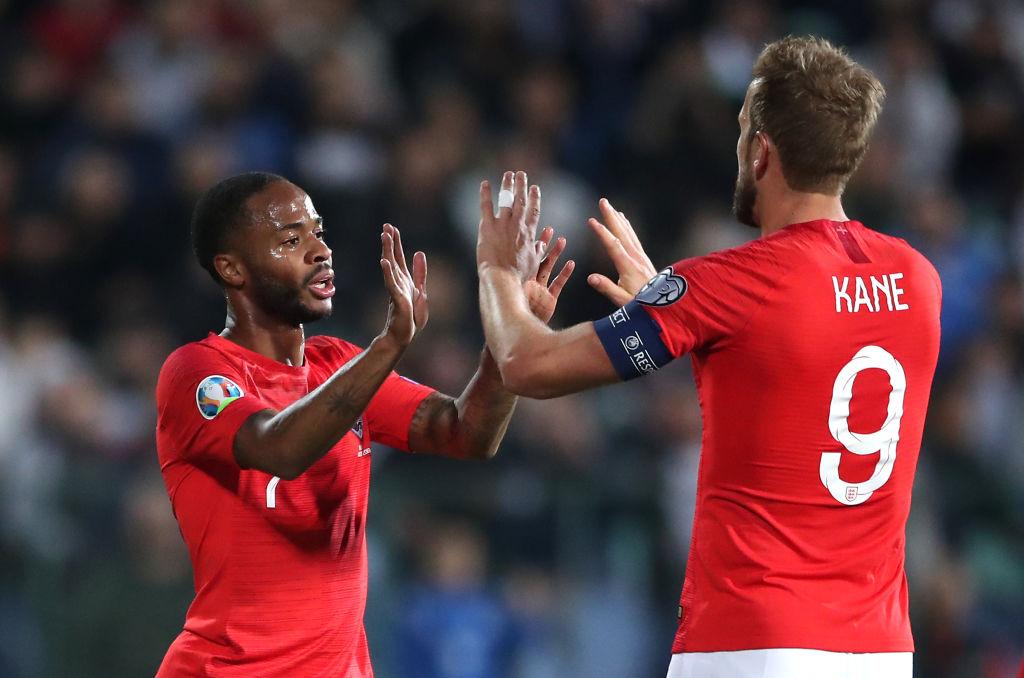The lost promise of 1989
Posted By Mark Leonard on November 4, 2019 @ 11:12

After the collapse of communism in Europe in 1989, many dreamed of building a united and free continent with the European Union at its core. But 30 years later, Europeans have awoken to a new reality. In Western Europe, political leaders are vetoing further enlargement of the bloc out of fear that Eastern Europeans are not ready to embrace liberal values. And in Central and Eastern Europe, there’s growing resentment towards Western Europe over its response to immigration and other issues.
These dynamics were on full display last month in the qualifying rounds for the Euro 2020 soccer tournament, where a game between England and Bulgaria became a contest between two fundamentally different notions of European identity. The match, held in Sofia, had to be paused twice for the home-team fans to be warned against racist behaviour [1], including Nazi salutes and monkey chants directed towards England’s black players.
After the game, British elite opinion was united in a fever of moral righteousness against the perceived barbarity of the Bulgarian fans. With multiculturalism having become a central part of the British national story over the past 30 years, many ethnic minorities worry that continental Europe’s perceived racism is a throwback to an ugly era of inequality and exclusion.
Hence, one of the ironies of the Euro 2020 episode is that it’s being cited as further evidence in support of the United Kingdom’s decision to leave the EU. According to the pro-Brexit camp, ending automatic immigration from Europe will make it easier for people from India, Bangladesh, Pakistan and the Caribbean to settle in the UK.
Viewed from the Bulgarian side, though, Britain’s moral proselytising looks like hypocrisy. After all, Bulgarian and Romanian immigrants were the targets of racist rhetoric during the 2016 Brexit referendum campaign. And as many in the Bulgarian media have pointed out, England’s own racist hooligans were responsible for the deadly disaster at Heysel Stadium in Belgium in 1985. If the motive behind Brexit is to preserve quintessential Englishness, Eastern Europeans pose no greater threat than multiculturalism does.
In The light that failed [2], a brilliant look back at the legacy of 1989, Ivan Krastev [3] of Vienna’s Institute for Human Sciences and Stephen Holmes [4] of New York University argue that the fall of the Berlin Wall marked the beginning of an age of imitation, rather than ‘the end of history’. When former Soviet bloc countries in Central and Eastern Europe started trying to replicate the culture, values and legal frameworks of Western Europe, those dreaming of a free and unified Europe had plenty to cheer about.
The problem is that millions of people in these countries realised that if the goal was to become just like Germans or the British, it would be easier simply to move to those countries, rather than undergo the painful process of transforming their societies into simulacra of others. As a result, one in five [5] Bulgarians—disproportionately comprising the most liberal and best-educated segment of the population—emigrated to Western Europe.
As Krastev and Holmes show, those left behind have increasingly compared their own prospects not to those of their parents, but to the lucky elite who resettled to live the Western dream. This has led to widespread frustration and anger towards the post-communist class of liberal reformers in Central and Eastern Europe. Not only did these Western-oriented elites fail to meet the unrealistic expectations of Western imitation, but they also allowed for a mass exodus of talent.
When the refugee crisis erupted in 2015, it fed into already deepening fears of demographic extinction among post-communist countries’ remaining native-born populations. And as we have seen in recent years, these anxieties have created an ideal political environment for illiberal populist and nationalist politicians like Hungarian Prime Minister Viktor Orbán and Poland’s de facto ruler, Jaroslaw Kaczynski.
‘While the East is still homogenous and mono-ethnic’, Krastev and Holmes write, ‘the West has become, as a result of what anti-liberal politicians consider a thoughtless and suicidal immigration policy, heterogenous and multi-ethnic’. As a result, the age of imitation—with its tacit acceptance of Western superiority—has come to a decisive end.
A similar process of inverse cultural mirroring was on display in the English–Bulgarian soccer match and its aftermath. Both sides claimed to be morally appalled by the actions of the other. While Britain has gone from implicitly tolerating racism to celebrating multiculturalism over the past 30 years, it has also developed an allergy to freedom of movement from Central and Eastern Europe. Bulgaria, by contrast, very much wants to remain in the EU, but has become terrified of further demographic change fuelled by emigration and inflows of newcomers from the Middle East and elsewhere.
The situation doubtless would appear perverse to an onlooker visiting from 1989. Who would have thought that Britain would be fleeing the EU, or that those advocating it would base their case on an argument in favour of ethnic diversity? And how many Central and Eastern Europeans would have predicted that their own governments would be trying to recast the EU as an illiberal project?
As is often the case, deep historical shifts tend to show up first in popular culture, and only then in formal politics. That’s why we should look at the complex legacy of 1989 not only in the formal celebrations being held in Berlin, but also in the stands of a soccer stadium in Sofia.
Article printed from The Strategist: https://aspistrategist.ru
URL to article: /the-lost-promise-of-1989/
URLs in this post:
[1] racist behaviour: https://www.businessinsider.com/bulgaria-fans-made-nazi-salutes-monkey-chants-at-england-players-2019-10?r=US&IR=TIR=T
[2] The light that failed: https://www.penguin.co.uk/books/308/308740/the-light-that-failed/9780241345702.html
[3] Ivan Krastev: https://www.project-syndicate.org/columnist/ivan-krastev
[4] Stephen Holmes: https://www.project-syndicate.org/columnist/stephen-holmes
[5] one in five: https://www.project-syndicate.org/onpoint/the-metamorphosis-of-central-europe-by-ivan-krastev-2019-01
Click here to print.